Internal medicine
EquiSound is specialized in diagnostics, prevention and non-surgical treatment of internal diseases of horses and ponies. Internistische onderzoeken zijn bijkomend uitstekend geschikt om problemen bij meerdere orgaansystemen aan het licht te brengen. Dit is aangewezen in de hieronder genoemde gevallen.
Long-term or chronic illness
It is important to consult a specialist in internal medicine, or a Diplomate of the European College of Equine Internal Medicine (ECEIM), if:
- the disease is chronic
- the disease or the symptoms are rare
- there is no exact diagnosis
- there is no or not enough healing after treatment
Disorders of the Gastrointestinal System
Chronic and recurrent colic due to gastric ulcers, parasite infestation, intake of sand, … can be a challenge for a veterinarian. Often, additional internal examinations such as blood exams, gastroscopy, ultrasonography, can reveal the cause.
Our specialist can help you with all gastro-intestinal disorders such as weight loss, diarrhea, poor appetite, recurrent esophageal obstructions.
Respiratory diseases
Nasal discharge, coughing, respiratory problems during performance and/or
reduced recuperation after performance, … can have multiple causes such as
allergic rhinitis
sinusitis
progressive ethmoid hematoma (PEH)
recurrent airway obstruction (RAO)
inflammatory airway disease (IAD):
inflammation of the lower airway
(exercise-induced) pulmonary
hemorrhage
…
Additional examinations such as (dynamic) endoscopy, broncho-alveolar lavage, x-ray, ultrasound and/or MRI, are needed to get a precise diagnosis with correct treatment.
This horse had a small amount of hemorrhagic nasal discharge since several weeks. At endoscopy only a very small ethmoid hematoma (PEH) was visible. An MRI exam was performed to visualize the exact size and place of the tumor. At the picture you can see the PEH is much bigger than expected, which changes the prognosis.
Cardiovascular diseases
An examination of the neurologic system of your horse is indicated if:
- the horse has an abnormal position of the head and/or legs
- the horse shows a change in behaviour
- the horse has difficulties to eat and/or poor appetite
- the horse is trembling or has muscle fasciculations
- the horse is depressed
Ziekten van het zenuwstelsel
Onderzoek van het zenuwstelsel bij paarden is aangewezen als:
- ze een afwijkende houding van het hoofd of de ledematen vertonen;
- hun gedrag plotseling verandert;
- ze moeilijkheden hebben om voedsel op te nemen;
- ze beven of bijvoorbeeld spiertrillingen vertonen.
Management of the aging horse
Our specialist in internal medicine can help you with the management of your aging horse. With regular check-ups and adapted feeding advice also the older horse can be and stay healthy and fit.
Investigations of group problems and business coaching
A good assessment of all the horses and their location at the company, clinical examinations and targeted sampling, can get us to a diagnosis and an appropriate treatment adapted to the situation at each particular company.
It is important to consult a specialist in equine internal medicine, Diplomate of the European College of Equine Internal Medicine (ECEIM), if:
- the disease is chronic
- the disease or the symptoms are rare
- there is no exact diagnosis
- there is no or not enough healing after treatment
Voorbeelden
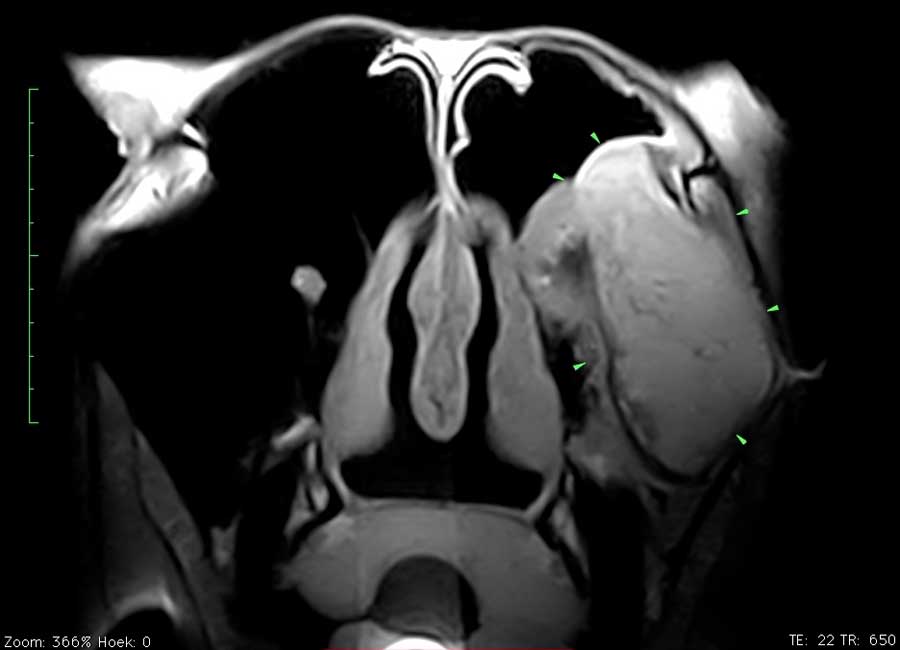
Dit paard had sinds enkele weken een unilaterale bloederige neusvloei. Op endoscopisch onderzoek was slechts een minimale afwijking ter hoogte van het linker ethmoid te zien. Radiografisch onderzoek toonde echter een grote massa in de sinus. Er werd beslist een pre-operatieve MRI uit te voeren om de operatie te plannen en ook de prognose beter te kunnen inschatten. Het ethmoid hematoom (PEH) bleek een groot deel van de linker sinus ingenomen te hebben.
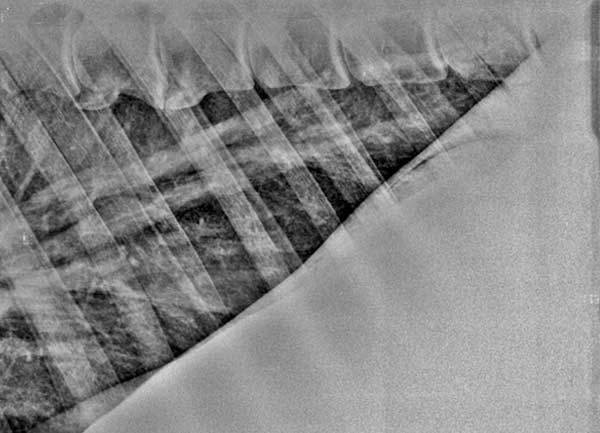
X-Ray of the lungs of a horse with severe lung problems.
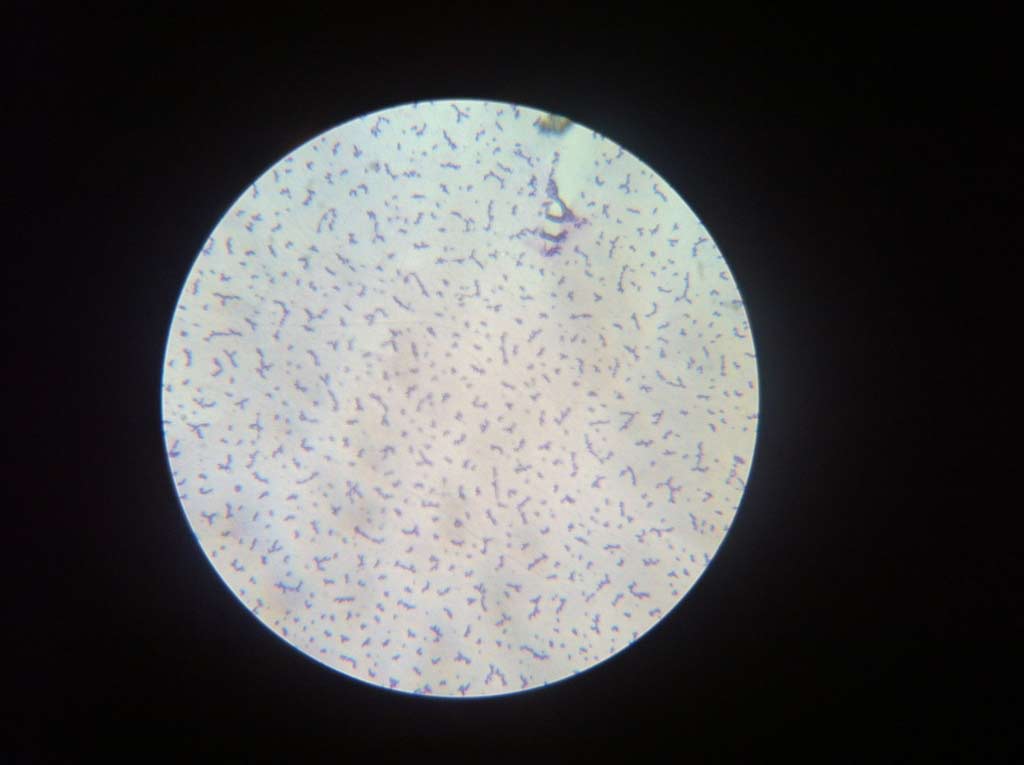
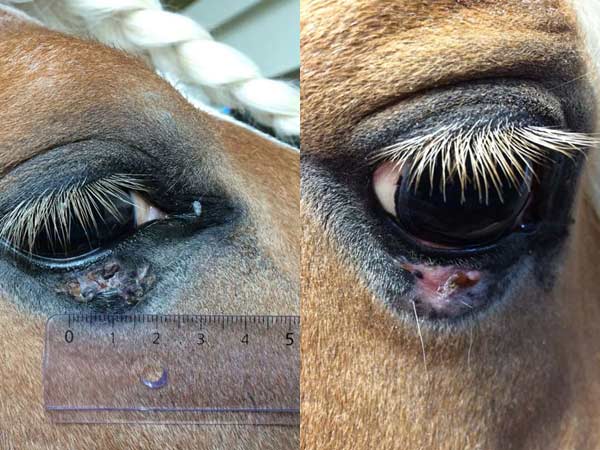
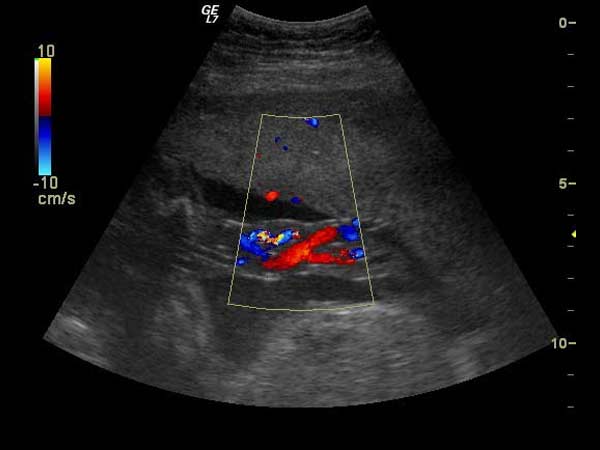
Microscopic image of the joint fluid of a foal. An enormous amount of inflammatory cells are present. The foal had a reduced immunity system due to a lack of colostrum after birth. Bacteria could infect him, and multiply in his blood and several joints.

